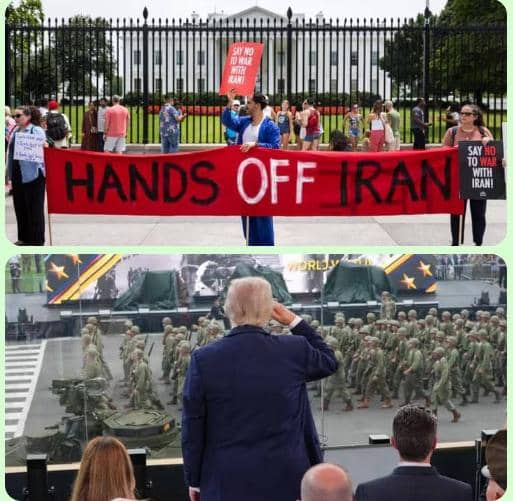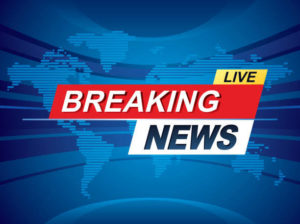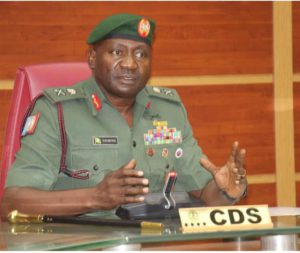Breaking: Trump Announces Ceasefire Deal Between Iran and Israel Amid Rising Tensions- No Official Confirmation Yet from Tehran or Tel Aviv

BREAKING: Trump Announces Ceasefire Deal Between Iran and Israel Amid Rising Tensions — No Official Confirmation Yet from Tehran or Tel Aviv
By Musbahu Basirka | Public Eye News
In a stunning diplomatic twist with global implications, U.S. President Donald Trump has declared a “complete and total ceasefire” between Iran and Israel, following a week of intense cross-border hostilities and a reported U.S. military strike on Iranian nuclear sites. The announcement, made during an urgent press conference, has gripped the attention of the international community and added fresh uncertainty to an already combustible situation.
However, no official confirmation of the ceasefire has been issued by either Tehran or Tel Aviv, raising doubts over the durability and authenticity of the deal.
The ceasefire news came just hours after reports emerged of Iranian missile strikes targeting a U.S. military installation in Qatar, allegedly in retaliation for the American precision strikes on key Iranian nuclear infrastructure. These developments mark a dangerous turning point in what many feared could escalate into a full-scale regional war.
The recent surge in violence has featured a mix of missile attacks, drone strikes, and cyber offensives, particularly between Israeli forces and Iran-backed militias operating in Lebanon, Syria, and Iraq. According to regional observers, the situation had reached a tipping point by the time the U.S. intervened with airstrikes, which Trump described as a “strategic necessity to prevent nuclear escalation.”
What Triggered the Crisis?
Several factors combined to push the Middle East to the edge:
Iran’s Nuclear Program: Intelligence reports alleged Iran had ramped up uranium enrichment, heightening fears in Israel and the West.
Proxy Conflicts: Iran’s support for Hezbollah and other armed factions clashed directly with Israeli interests across multiple fronts.
Gaza Spillover: The escalating crisis in Gaza reenergized Iranian hardliners, emboldening Tehran’s military posture in the region.
JCPOA Fallout: The U.S. withdrawal from the Iran nuclear deal under Trump in 2018 fractured diplomatic ties and eliminated a key containment tool.
Targeted Assassinations: Both Iranian and Israeli high-ranking officials were killed in shadowy operations over the past year, inflaming tensions.
Ceasefire Announcement Raises Eyebrows
Trump’s announcement made without the presence of representatives from either Iran or Israel has been met with cautious optimism but widespread skepticism. Back-channel negotiations, possibly brokered by Switzerland, Oman, or Qatar, are rumored to have played a central role in the ceasefire talks, though details remain scarce.
“The ceasefire includes a pledge by both sides to halt active hostilities, reduce troop presence near contested zones, and begin steps toward a de-escalation framework,” Trump claimed. Yet without official statements from the conflicting parties, analysts are treating the announcement as tentative at best.
Global Reactions Pour In
United Nations: Called for “immediate dialogue” and urged all stakeholders to uphold the ceasefire.
Russia: Expressed alarm over the U.S. strikes but acknowledged the ceasefire announcement as a “positive signal.”
China: Urged a return to the Joint Comprehensive Plan of Action (JCPOA) and condemned unilateral military actions.
Saudi Arabia & Turkey: Monitoring developments closely, concerned about the ripple effects on regional stability.
A Fragile Pause in an Unstable Region
Despite the announcement, Middle East watchers warn the region remains on a knife’s edge. With deep-rooted mistrust, unresolved ideological divides, and competing strategic interests, the chance of renewed conflict remains high. The Iranian missile strike on U.S. assets in Qatar, if verified, could shatter the ceasefire before it even begins.
“History has shown us that ceasefires in the Middle East are often short-lived unless underpinned by robust verification and diplomatic follow-through,” said Dr. Amal Najjar, a political analyst based in Amman, Jordan.
The Road Ahead
For a sustainable peace to emerge, analysts agree that:
- A return to structured nuclear diplomacy is essential.
Multilateral verification mechanisms must be established.
2. Regional powers, including Saudi Arabia, Turkey, and Egypt, must be actively involved.
3. Confidence-building measures like humanitarian exchanges and open communication channels should be prioritized.
While Trump’s dramatic announcement may have bought the region a brief moment of pause, the underlying dangers remain deeply entrenched. The world now watches closely, hoping that diplomacy not conflict will define the next chapter of this historic standoff.
Stay with Public Eye News for real-time updates and expert analysis on this developing story.
#TrumpCeasefireDeal #IranIsraelConflict #MiddleEastTensions #USStrikesIran #IranMissileAttack #JCPOA #PublicEyeNews #BreakingNews






